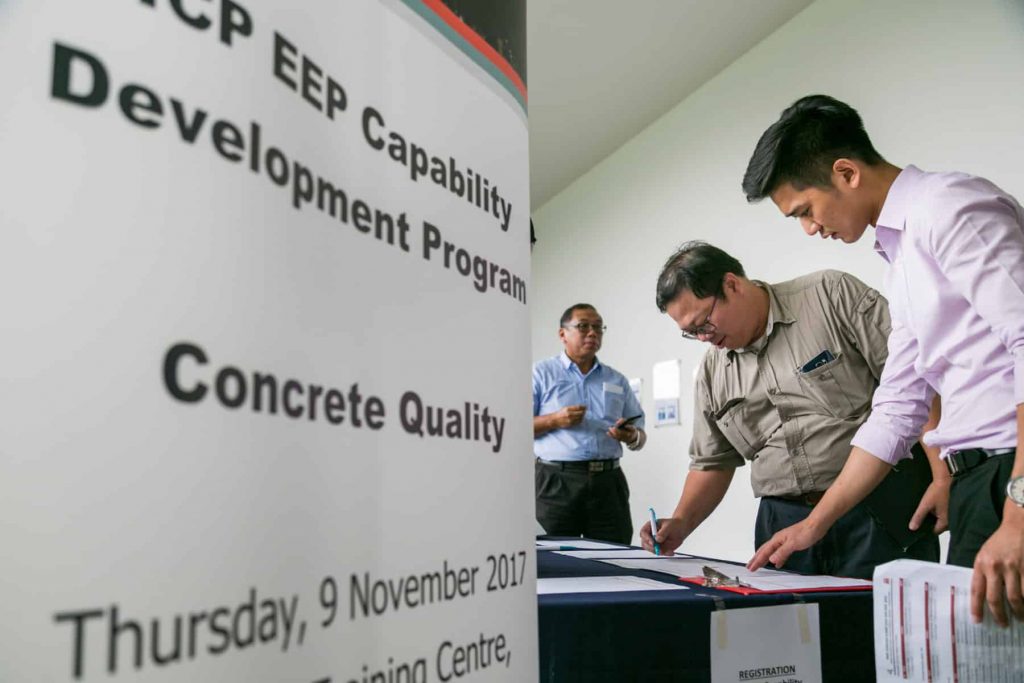Building the skills, knowledge and expertise of local talent including specialist training of staff and contractors has been a key focus for the MRT SSP Line.
MMC Gamuda and MRT Corp’s Industrial Collaboration Programme (ICP) is aimed at ensuring the capability development of all moving parts of the project and covers three main topics:
- Safety, Health & Environment (SHE) training
- Building Information Modelling (BIM) training
- Project Management — Concrete Quality training
The Concrete Quality Training programme was launched in November 2017 and was introduced to provide a sustainable approach to the construction of the MRT SSP Line and make employees and contractors aware of the environmental impact of concrete.
Did You Know?
The world’s consumption of concrete is estimated to be over 12 billion tonnes per year.
A metro rail is engineered to have a lifespan of at least 100 years. With concrete being integral in the MRT viaduct construction, concrete quality is vital to prevent early ageing and short life cycle of concrete structures.
Dr Michel Di Tommaso of IMM Soil Sdn Bhd, a material testing laboratory and consulting firm in concreting technology, was engaged to provide training services on concrete technology and to minimise construction risks and future repair and rehabilitation works.
The programme allows knowledge transfer from a basic to advanced level to make sure workers on the MRT SSP Line are equipped with the necessary skills to improve the standards of concrete usage on site.
“Concrete and concrete technology are generally weak parts of infrastructure projects, yet concrete is the most widely used material in construction. But there is little knowledge,” says Dr Tommaso.
“It is generally left to specialists to deal with problems when they come.
“We want to bring attention to the sustainability of concrete construction through education on the use of supplementary materials that can limit the carbon footprint of concrete.”
The programme begins with a basic approach to concrete technology to make sure that everyone has a common ground and understanding.
“We then introduce more complex aspects with parallel practical sessions where the trainees will visually understand the impact of good quality concrete and how to design concrete mixes,” says Dr Tommaso.
“Basically, it is a step by step process starting from the very basics going to the advanced concrete technology through theoretical learning and implementation of practical sessions.”
The long-term goal is that Malaysia will have a network of “concrete professionals” to be able to build flawless and durable structures with lower maintenance costs in the decades to come.
Read More: An ambitious project by an ambitious nation

